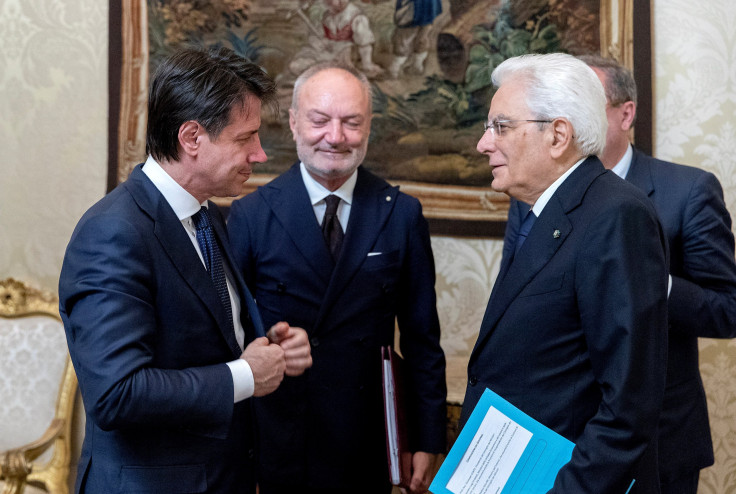Markets Breathe Easier As Italy Government Sworn In

Italy's new anti-establishment government was being installed on Friday, calming markets spooked by the possibility of snap elections that might have become a de facto referendum on quitting the euro.
President Sergio Mattarella was due to swear in Prime Minister Giuseppe Conte, a little-known law professor, and a cabinet that includes the two coalition party heads, the League's Mateo Salvini and Luigi Di Maio of the 5-Star Movement.
Ironically, after the swearing in at the Quirinale Palace, politicians who last week were calling for Mattarella's impeachment will mingle with him at a reception in its manicured Renaissance gardens to mark the Feast of the Republic.
The 5-Star Movement had called for protests against Mattarella on the feast, marked by a parade on Saturday that is supposed to celebrate national unity, after he vetoed their choice of finance minister, Paolo Savona, an 81-year-old eurosceptic economist.
After the government was formed, however, the 5-Star began referring to the gatherings as "street parties".
After months of uncertainty in the eurozone's third-biggest economy, Italy's blue-chip share index was up more than 2 percent, as banks recovered from a rout and government bond yields moved sharply lower in early trade.
On Tuesday, when a snap election looked very likely, a sell-off of Italian debt caused the biggest one-day rise in two-year bond yields since 1992.
(For a graphic on 'Italy's 2-year bond yield' click https://reut.rs/2Jm6oAc)
Ordinary Italians were relieved by the end of political deadlock but wanted action to solve their daily problems.
"They need to be more quiet and do more. There is too much talking, just like I'm talking now," said Rome pensioner Lino Cozzalini. "At the end of the day what is resolved?"
POWERFUL DUO CAN PULL STRINGS
Salvini, head of the far-right, anti-immigrant League, and Di Maio, who leads 5-Star, a grassroots movement set up by comic Beppe Grillo that has never been in government before, will both become deputy prime ministers.
Salvini will also be interior minister, with authority over immigration, and Di Maio gets the Labour and Industry portfolio.
Those potent combinations raise the question of how much power will be left for Conte, who never ran for office and whom most Italians had never heard of before last week.
"The Populists Take the Government," was the headline in the left-leaning La Repubblica newspaper, adding in a commentary that many of the cabinet members had right-wing views on a host of issues.
The coalition's programme has not changed since it was presented at the first attempt to form a government last week.
It has no specific reference to leaving the euro but includes a vague possibility of the state issuing "mini-BOTs", securities to pay people or companies for services or as tax rebates, something critics say is a parallel currency that could pave the way for exiting the EU currency system.
Savona, who had been first pick for finance minister, will instead be European affairs minister, a less powerful role but one which will mean him negotiating with Brussels and speaking on EU issues.
Italy has debts totalling more than 130 percent of its economic output, second in the euro zone after Greece, and is often described as "too big to fail" - -- meaning the euro zone simply cannot afford to bail out its third biggest member.
The coalition's manifesto says it will push the European Union to review the bloc's rules that limit public spending, which Salvini says have "enslaved" Italians.
The parties' new economy minister, another little-known figure, economics professor Giovanni Tria, has been critical of the EU's economic governance, but unlike Savona he has not advocated a "plan B" for possibly exiting the euro.
© Copyright Thomson Reuters 2024. All rights reserved.




















